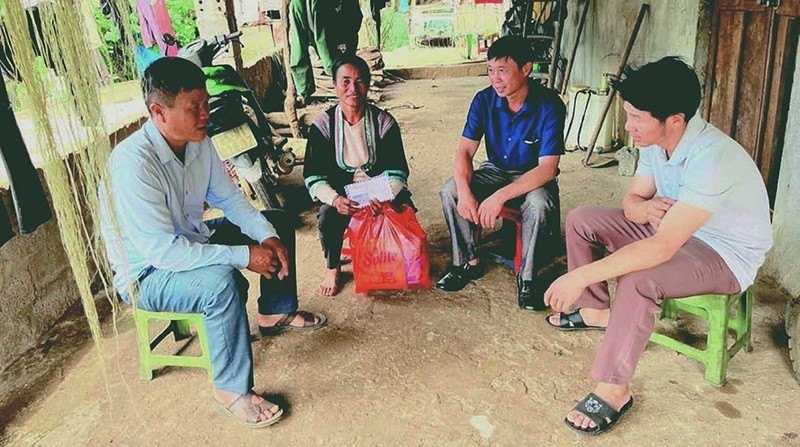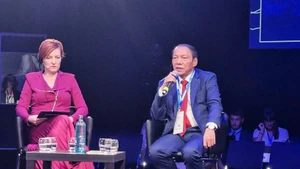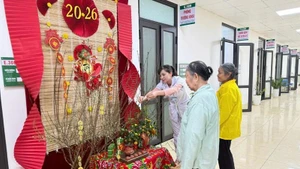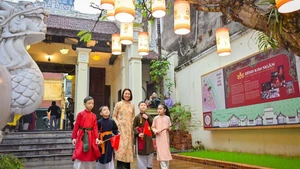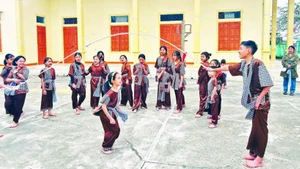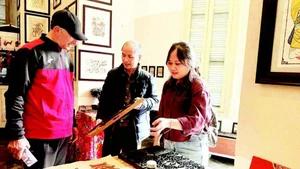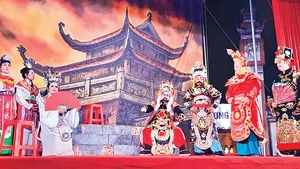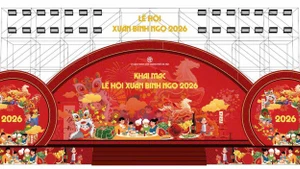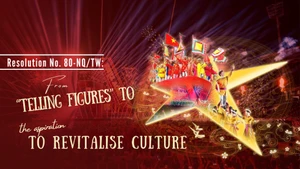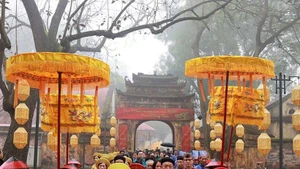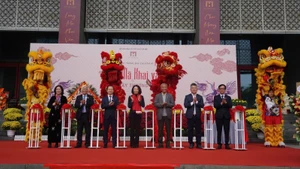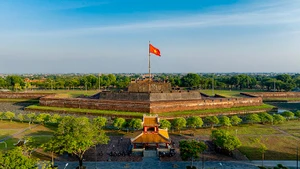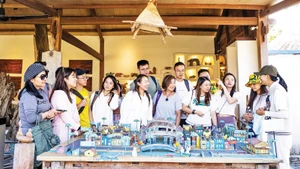To achieve this goal, human resources in the cultural sector must be placed at the heart of the strategy, with cadre affairs as the core. The competence, qualifications and integrity of the cultural workforce are pivotal to building a rich, modern and integrated culture that meets the people’s growing demand for cultural creation and enjoyment in the new era.
In recent years, the Party and the State have adopted a range of policies to prioritise the development of culture. Culture is increasingly recognised as a fundamental pillar and driving force for economic development, contributing to enhancing Viet Nam’s soft power in safeguarding national security and promoting international integration.
The culture of each locality and region has been supported through tailored policies designed to enhance the preservation, safeguarding and promotion of its values within community life. At the heart of cultural development lies the human factor, with the people themselves being both creators and consumers of culture — and at the core of this process is the team of cultural officers.
In reality, localities with competent and dedicated cultural officers, equipped with in-depth cultural knowledge, are often home to vibrant cultural movements that attract both the public and businesses. Culture not only enriches the spiritual life of communities but also generates employment and increases income for the people.
In many localities where cultural staff receives attention and resources for training, there have been significant improvements in grassroots cultural life. However, in remote and disadvantaged areas, many cultural officers have yet to meet the requirements of the new context. This remains one of the reasons why cultural development in certain regions has not kept pace with their potential, strengths or economic growth.
Following the administrative restructuring under the two-tier local government model, 34 provinces and centrally-run cities now comprise 3,321 communes. The streamlining of administrative units presents an opportunity to advance cultural development, but it also poses new challenges for grassroots personnel work.
As provinces and cities expand their administrative boundaries, they inevitably become more culturally diverse and home to a greater number of cultural heritages. This demands a management approach that is professional, specialised and harmonious, ensuring that the invaluable legacies deeply rooted in community life are not lost. Accordingly, the qualifications and capacities of grassroots cultural personnel must be significantly improved.
For two-tier local governments, the selection of cultural officers who can meet the demands of the new context must be given serious consideration to avoid parochialism. Individuals with strong professional expertise and cultural scholars must be afforded the opportunity to engage in local cultural management. Cultural officers in this new era must possess a solid cultural foundation, deep understanding of local culture, a strategic vision, and the ability to inspire the community.
A vital requirement for cultural officers in the digital era is technological proficiency. They must be willing to learn, adapt, and work alongside the people in preserving and creating cultural values.
Properly recognising the importance and role of culture in socio-economic development is fundamental to ensuring sustainable growth for each locality and the nation as a whole. To that end, the training, capacity building and strategic deployment of grassroots cultural personnel in line with their capabilities and broader development trends.
There must be greater focus on preferential policies and incentives for cultural officers, as they are a key driving force in promoting cultural values within communities and enterprises, contributing to the achievement of the strategic cultural development goals set by the Party and the State.
